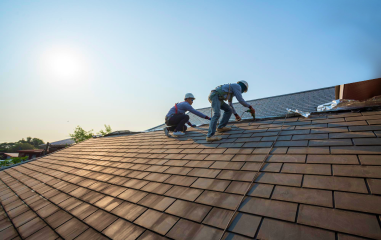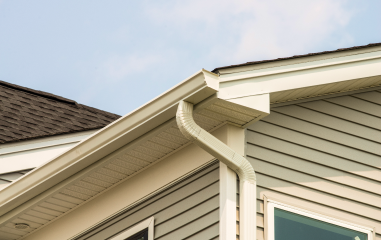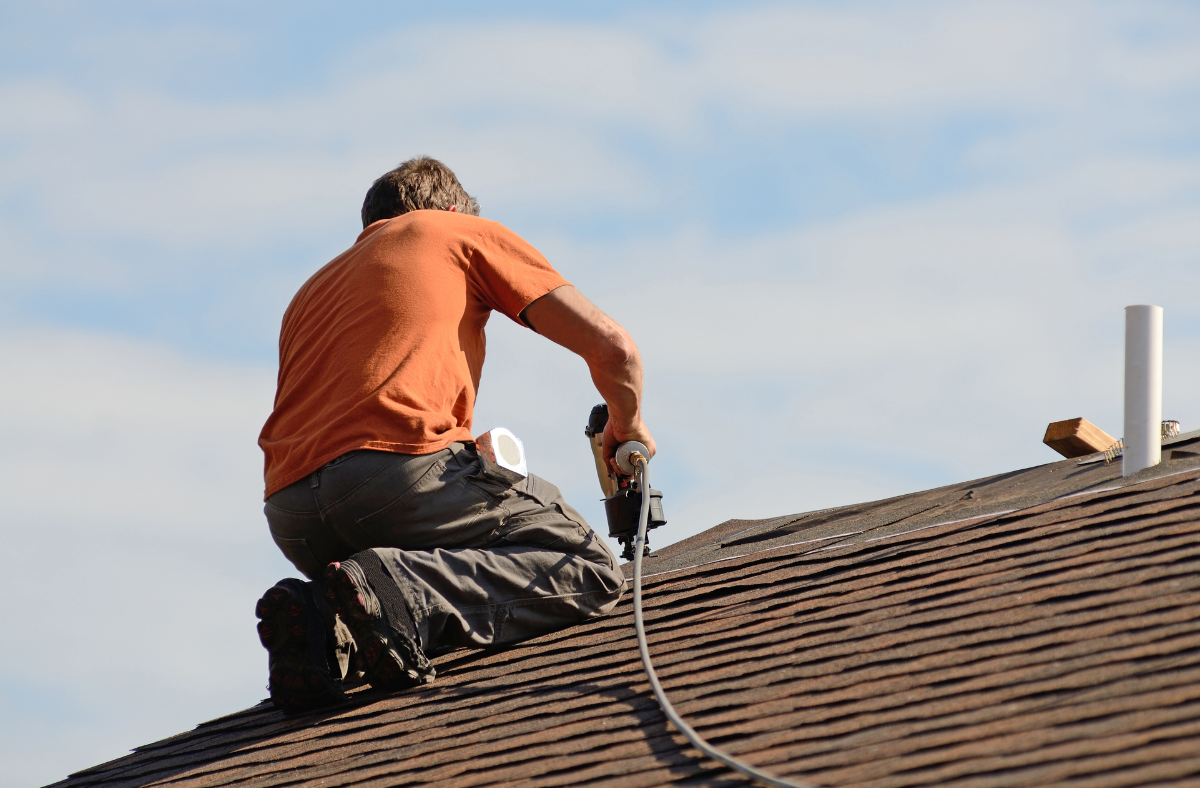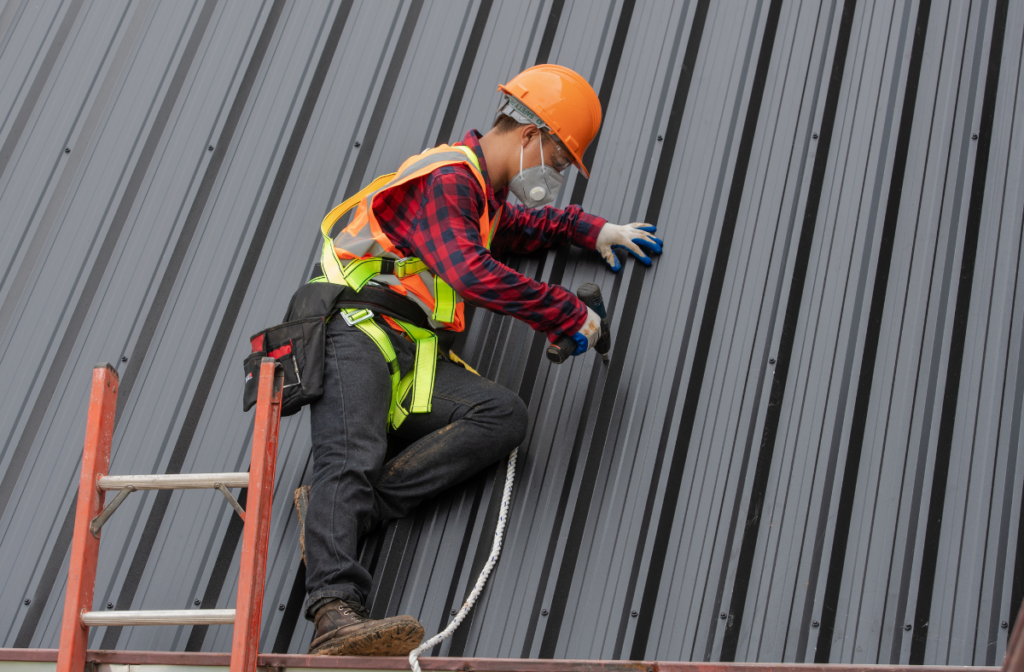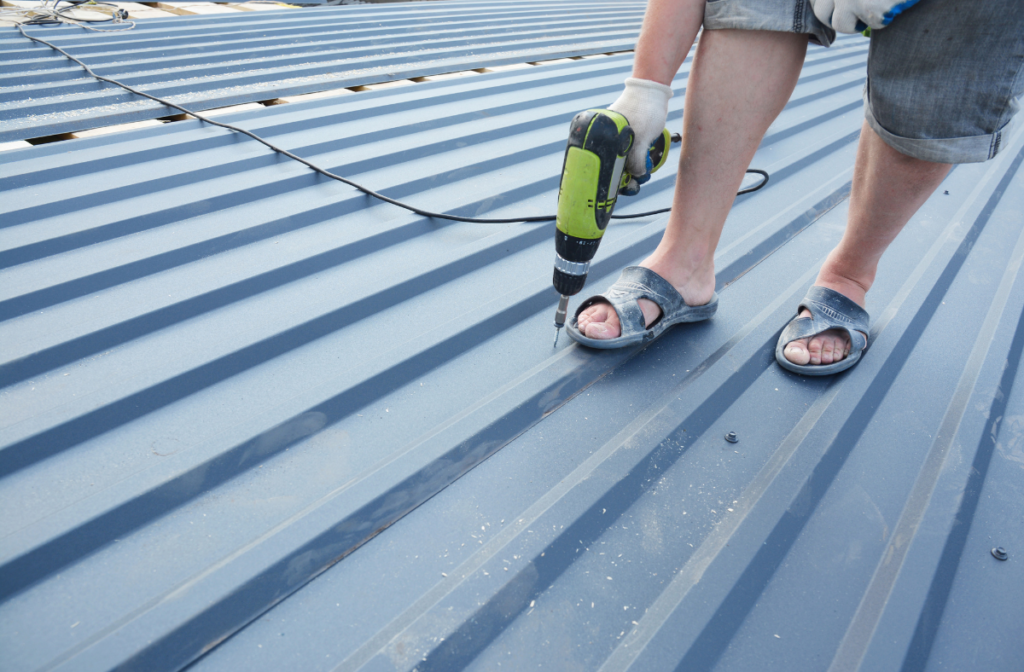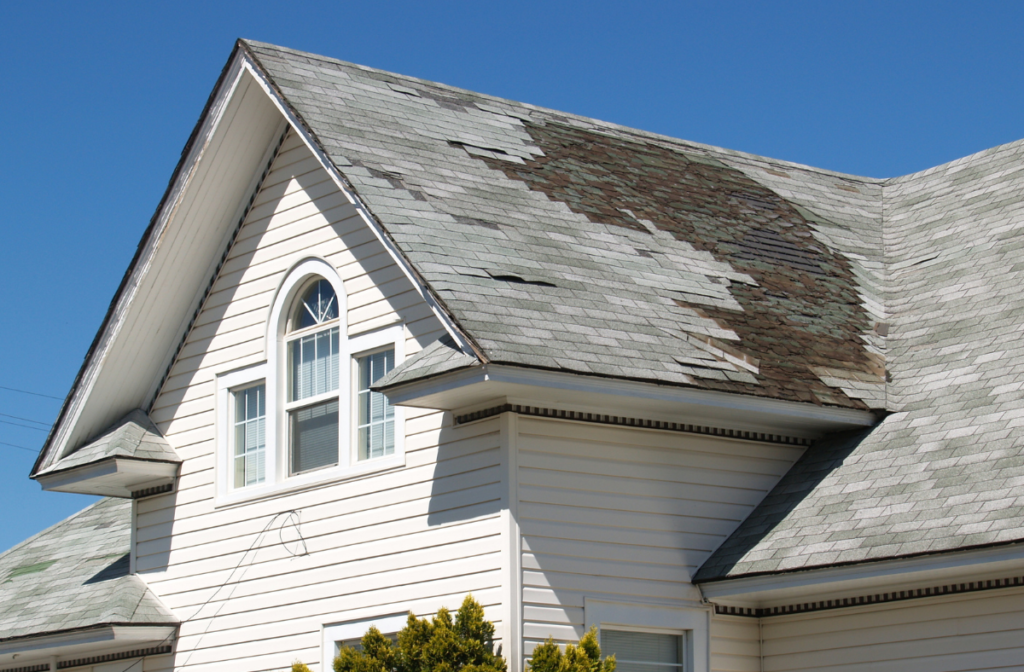Getting a new roof is one of the biggest investments you can make in your home. It protects everything you value from the unpredictable Texas weather, like hail, heat, hurricanes, and heavy rain.
But what happens if something goes wrong after your roof is installed? That’s where your roofing warranty comes in.
Unfortunately, many homeowners don’t really understand what their warranty covers. Between fine print, confusing language, and different types of warranties, it’s easy to get lost.
If you want your roofing warranty explained in simple terms, you’re in the right place.
Table of Contents
Need to repair or replace your roof? Give us a call for FREE roof inspection
What Is a Roofing Warranty?
A roofing warranty is a written guarantee that your roof will perform as promised for a certain period of time. It’s a safety net that protects you from unexpected problems caused by manufacturing defects or installation errors.
There are two main types of roofing warranties: manufacturer warranties and workmanship warranties. Understanding both is key to knowing how your roof is protected and who to contact if issues arise.
The Two Main Types of Roofing Warranties
If you have your roofing warranty explained, you’ll discover that there are actually two main types of warranties.
Manufacturer (Material) Warranty
A manufacturer’s warranty covers the materials used on your roof, such as shingles, underlayment, or flashing, if they fail due to a defect. This warranty is provided by the roofing material manufacturer, not the contractor who installs it.
For example, if a batch of shingles cracks, curls, or loses granules prematurely because of a manufacturing flaw, the manufacturer is responsible for replacing them. However, this warranty doesn’t cover roof storm damage, poor installation, or regular wear and tear.
The length of manufacturer warranties varies depending on the product and brand. Many high-quality shingles offer 20-, 30-, or even 50-year warranties. Some premium lines include “lifetime” coverage, which generally means coverage for as long as you own your home.
Workmanship (Labor) Warranty
The workmanship warranty is issued by your roofing contractor. It covers problems caused by mistakes made during installation, like improper nailing, poor flashing, or incorrect ventilation.
Even if your roofing materials are top-notch, poor installation can lead to leaks and other issues that aren’t covered by a manufacturer’s warranty. That’s why a strong workmanship warranty is just as important as the material warranty.
The length of a workmanship warranty varies widely from contractor to contractor. Some offer one year, others five or ten. Reputable roofing companies stand behind their work for much longer.
At M&M Roofing, Siding, and Windows, we take pride in offering a lifetime warranty on all new roofs and honoring warranties without hassle. If you’re not 100% satisfied with the work we do, we’ll come back and make it right. That’s our promise.
Together, these two warranties ensure that both the materials and the installation of your roof are covered.
What’s Typically Covered (and What’s Not)
Warranties can sound all-encompassing, but they only protect against specific problems. Knowing what is and isn’t covered helps prevent surprises later.
What’s Usually Covered:
- Defective or prematurely failing shingles
- Manufacturing flaws in roofing materials
- Leaks caused by improper installation (if you have a workmanship warranty)
What’s Not Covered:
- Damage from hail, wind, or storms (that’s what your homeowners insurance is for)
- Normal wear, fading, or aging
- Improper maintenance, such as letting debris accumulate or neglecting repairs
- Damage from non-roofing work, like satellite dish or solar panel installation
- Roof leaks caused by poor attic ventilation or clogged gutters
Understanding these limits helps set realistic expectations. A roofing warranty doesn’t replace your insurance. It complements it.
Common Warranty Terms Explained Simply
Roofing warranties are full of terms that can be confusing. Here are the most common ones explained in plain English.
Lifetime Warranty
This doesn’t mean your roof will last forever. It usually means the warranty covers you for as long as you own the home. If you sell the house, coverage may transfer to the new owner for a limited time.
Prorated vs. Non-Prorated
A prorated warranty means the coverage value decreases as your roof ages. For example, if your shingles are 15 years into a 30-year warranty, you might only receive half the original value for replacements.
A non-prorated warranty provides full coverage for the entire term.
Transferable Warranty
This allows you to transfer your warranty to the next homeowner. It’s an attractive feature when selling your home because it reassures buyers that the roof remains under protection.
Most manufacturers require you to file paperwork within a specific timeframe to transfer the warranty.
Limited Warranty
Almost all warranties are “limited,” meaning they include certain conditions and exclusions. Always read the fine print to see what’s required for coverage.
System Warranty
This applies when all components of a roofing system—shingles, underlayment, vents, and flashing—come from the same manufacturer and are installed by a certified contractor. It usually offers stronger coverage since the system is designed to work together.
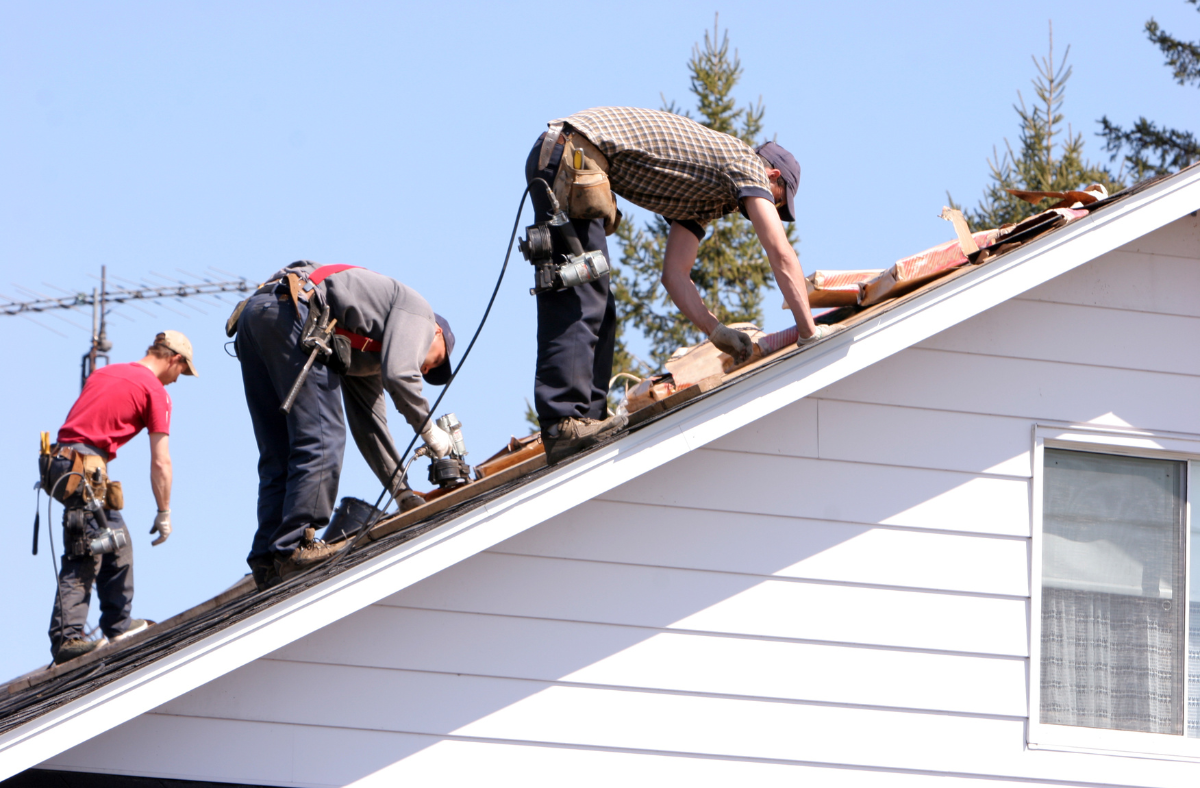
How to Keep Your Warranty Valid
One of the most common mistakes homeowners make is accidentally voiding their warranty. Roofing warranties come with specific conditions that must be met to stay valid. Here’s how to keep yours in good standing.
Hire a Certified Roofing Contractor
Most manufacturers require that your roof be installed by an approved or certified contractor. Hiring someone who cuts corners or isn’t licensed can void your warranty immediately.
M&M Roofing, Siding, and Windows is GAF Elite certified, GAF President’s Club certified, and an Owens Corning preferred contractor.
Register Your Warranty
Many manufacturers require homeowners to register their warranty after installation. It’s usually a quick online form, but skipping it can mean losing your coverage.
Perform Regular Maintenance
Neglecting roof maintenance is a fast way to void your warranty. Clean your gutters, remove debris, and schedule periodic inspections. These steps not only extend your roof’s life but also prove that you’ve maintained it properly.
Avoid Unauthorized Work
If another contractor (for example, an HVAC or solar installer) cuts into your roof without coordination, any resulting damage may not be covered. Always contact your roofer before making modifications.
Report Problems Promptly
Don’t wait until small leaks turn into major repairs. Most warranties require you to notify the manufacturer or contractor as soon as you discover an issue. Waiting too long can void your coverage.
By following these simple steps, you protect both your investment and your ability to make a successful warranty claim.
Manufacturer vs. Contractor Warranty: Why You Need Both
Both warranties work together to give you full protection. One covers the materials, the other covers the workmanship. Without both, you could end up in a frustrating situation where neither party takes responsibility for an issue.
For instance, imagine your roof starts leaking six months after installation. If it’s caused by defective shingles, the manufacturer will likely cover the materials. But if it’s due to improper flashing or nail placement, the problem falls under the workmanship warranty.
Having both warranties ensures you’re covered no matter what caused the issue. It also prevents the blame game that can happen when manufacturers and contractors point fingers at each other.
A reputable, long-standing company like M&M Roofing, Siding, and Windows simplifies that process. We use high-quality materials backed by trusted manufacturers and stand behind every installation. No matter what type of problem arises, you can be sure that you’re covered.
What to Look for When Choosing a Roofing Company
Not all roofing companies offer the same level of protection. Before signing a contract, have your roofing warranty explained so you know what’s included and how the company handles claims. Here are a few important questions to ask:
- What types of warranties come with my new roof?
- Is the workmanship warranty in writing, and how long does it last?
- Are you certified or approved by the manufacturer of the roofing materials?
- Is the warranty transferable if I sell my home?
- What happens if I have a problem—who do I contact first?
Choosing a company that offers clear answers and stands by its work will save you stress later. Look for contractors with a long track record, strong reviews, and local offices you can visit. Local companies have a reputation to uphold in the community and are more likely to honor their warranties years down the line.
How to File a Roofing Warranty Claim
If you ever need to use your warranty, the process should be straightforward. Start by reviewing your warranty documents to confirm the issue is covered. Then contact your roofer or the manufacturer, depending on which warranty applies.
Provide photos, a copy of your warranty, and a description of the problem. In most cases, the roofing contractor will inspect the roof to determine the cause. If the issue falls under warranty, the contractor or manufacturer will arrange for repairs or replacement materials.
Final Thoughts: Know What Protects Your Roof
Your roof is one of the most important parts of your home, and one of the most expensive to replace. A strong roofing warranty provides peace of mind, knowing that if something goes wrong, you won’t have to handle it alone.
Understanding your roofing warranty helps you make smarter choices when it’s time for installation or repair. It tells you what’s covered, what’s not, and how to keep that protection in place.
If you’re thinking about replacing your roof or have questions about your current warranty, contact M&M Roofing, Siding, and Windows today for a free roof inspection.
We’ll do a detailed inspection of your roof, note any damage, and provide you with the next steps.
With us, you can be sure you’re in good hands.
M&M Roofing, Siding, and Windows has been serving Texas homeowners for over 40 years. Call us or complete the request form to schedule a FREE roof inspection and consultation.



